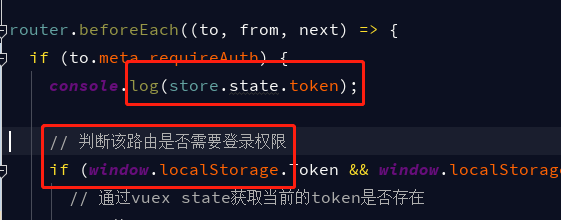What class can I use for reading an integer variable in Java?
问题:
回答1:
You can use java.util.Scanner (API):
import java.util.Scanner;
//...
Scanner in = new Scanner(System.in);
int num = in.nextInt();
It can also tokenize input with regular expression, etc. The API has examples and there are many others in this site (e.g. How do I keep a scanner from throwing exceptions when the wrong type is entered?).
回答2:
If you are using Java 6, you can use the following oneliner to read an integer from console:
int n = Integer.parseInt(System.console().readLine());
回答3:
Here I am providing 2 examples to read integer value from the standard input
Example 1
import java.util.Scanner;
public class Maxof2
{
public static void main(String args[])
{
//taking value as command line argument.
Scanner in = new Scanner(System.in);
System.out.printf(\"Enter i Value: \");
int i = in.nextInt();
System.out.printf(\"Enter j Value: \");
int j = in.nextInt();
if(i > j)
System.out.println(i+\"i is greater than \"+j);
else
System.out.println(j+\" is greater than \"+i);
}
}
Example 2
public class ReadandWritewhateveryoutype
{
public static void main(String args[]) throws java.lang.Exception
{
System.out.printf(\"This Program is used to Read and Write what ever you type \\nType quit to Exit at any Moment\\n\\n\");
java.io.BufferedReader r = new java.io.BufferedReader (new java.io.InputStreamReader (System.in));
String hi;
while (!(hi=r.readLine()).startsWith(\"quit\"))System.out.printf(\"\\nYou have typed: %s \\n\",hi);
}
}
I prefer the First Example, it\'s easy and quite understandable.
You can compile and run the JAVA programs online at this website: http://ideone.com
回答4:
Check this one:
public static void main(String[] args) {
String input = null;
int number = 0;
try {
BufferedReader bufferedReader = new BufferedReader(new InputStreamReader(System.in));
input = bufferedReader.readLine();
number = Integer.parseInt(input);
} catch (NumberFormatException ex) {
System.out.println(\"Not a number !\");
} catch (IOException e) {
e.printStackTrace();
}
}
回答5:
Second answer above is the most simple one.
int n = Integer.parseInt(System.console().readLine());
The question is \"How to read from standard input\".
A console is a device typically associated to the keyboard and display from which a program is launched.
You may wish to test if no Java console device is available, e.g. Java VM not started from a command line or the standard input and output streams are redirected.
Console cons;
if ((cons = System.console()) == null) {
System.err.println(\"Unable to obtain console\");
...
}
Using console is a simple way to input numbers. Combined with parseInt()/Double() etc.
s = cons.readLine(\"Enter a int: \");
int i = Integer.parseInt(s);
s = cons.readLine(\"Enter a double: \");
double d = Double.parseDouble(s);
回答6:
check this one:
import java.io.*;
public class UserInputInteger
{
public static void main(String args[])throws IOException
{
InputStreamReader read = new InputStreamReader(System.in);
BufferedReader in = new BufferedReader(read);
int number;
System.out.println(\"Enter the number\");
number = Integer.parseInt(in.readLine());
}
}
回答7:
This causes headaches so I updated a solution that will run using the most common hardware and software tools available to users in December 2014. Please note that the JDK/SDK/JRE/Netbeans and their subsequent classes, template libraries compilers, editors and debuggerz are free.
This program was tested with Java v8 u25. It was written and built using
Netbeans IDE 8.0.2, JDK 1.8, OS is win8.1 (apologies) and browser is Chrome (double-apologies)
- meant to assist UNIX-cmd-line OG\'s deal with modern GUI-Web-based IDEs
at ZERO COST - because information (and IDEs) should always be free.
By Tapper7. For Everyone.
code block:
package modchk; //Netbeans requirement.
import java.util.Scanner;
//import java.io.*; is not needed Netbeans automatically includes it.
public class Modchk {
public static void main(String[] args){
int input1;
int input2;
//Explicity define the purpose of the .exe to user:
System.out.println(\"Modchk by Tapper7. Tests IOStream and basic bool modulo fxn.\\n\"
+ \"Commented and coded for C/C++ programmers new to Java\\n\");
//create an object that reads integers:
Scanner Cin = new Scanner(System.in);
//the following will throw() if you don\'t do you what it tells you or if
//int entered == ArrayIndex-out-of-bounds for your system. +-~2.1e9
System.out.println(\"Enter an integer wiseguy: \");
input1 = Cin.nextInt(); //this command emulates \"cin >> input1;\"
//I test like Ernie Banks played hardball: \"Let\'s play two!\"
System.out.println(\"Enter another integer...anyday now: \");
input2 = Cin.nextInt();
//debug the scanner and istream:
System.out.println(\"the 1st N entered by the user was \" + input1);
System.out.println(\"the 2nd N entered by the user was \" + input2);
//\"do maths\" on vars to make sure they are of use to me:
System.out.println(\"modchk for \" + input1);
if(2 % input1 == 0){
System.out.print(input1 + \" is even\\n\"); //<---same output effect as *.println
}else{
System.out.println(input1 + \" is odd\");
}//endif input1
//one mo\' \'gain (as in istream dbg chk above)
System.out.println(\"modchk for \" + input2);
if(2 % input2 == 0){
System.out.print(input2 + \" is even\\n\");
}else{
System.out.println(input2 + \" is odd\");
}//endif input2
}//end main
}//end Modchk


